Geboren 1964, Lowell, Massachusetts. Lebt und arbeitet in Boston. Bitte fragen Sie in der Galerie nach dem aktuellen Lebenslauf.
Born, Lowell, Massachusetts 1964. Lives and works in Boston. Please ask the gallery for the updated CV.
So Close - So Far Away
Photographien von David Hilliard in der LA Galerie
KompositionHilliards Breitwand-Bilder sind aus mehreren einzelnen Photographien zusammengesetzt. Diese quadratischen Abzüge zeigen jeweils einzelne Teile eines Panoramas, eines Blicks in eine Küche, in ein Schlafzimmer oder in einen Garten. Doch anders als beim traditionellen Panorama, wo der Betrachter oder der Photograph sich um die eigene Achse dreht und nicht den Standpunkt wechselt, sind Hilliards Panoramen zerlegt und wieder zusammengesetzt. Auf den zweiten Blick merkt man, daß die einzelnen Teile nicht nahtlos aneinanderpassen. Es gibt Differenzen in den Größenverhältnissen, in der Schärfe und offenbar wurde auch der Aufnahmewinkel leicht geändert. Es kann geschehen, daß Teile zwischen den Bildern fehlen.
Beziehungen
Unabhängig davon, ob es sich bei den Protagonisten von Hilliards Photos um Liebespaare, um Vater und Sohn oder einfach um Freunde handelt – der Betrachter ist sofort gefangen von den Emotionen, die die Szenen ausstrahlen. Der Künstler steht seinen Figuren nie neutral gegenüber, sein Blick auf sie ist oft zärtlich, zumindest aber interessiert. Auf diese Weise wird der Betrachter sofort affiziert. ("In der Welt meiner Bilder wird das, was zunächst subjektiv und vertraut erscheint, oft zu einem ganz allgemeinen Kommentar über die Umstände des Lebens. Ich versuche, die Räume, die wir bewohnen, die Beziehungen, die wir aufbauen, und die Objekte, mit denen wir uns umgeben, darzustellen – meine Hoffnung aber ist, daß die Botschaften meiner Bilder von meinen und von unseren ganz universellen Erfahrungen sprechen." D.H.)
Dimensionen
Der Abstand zwischen Betrachter und Objekt ist in Hilliards Bildern oft auf eine Minimum reduziert. Eine Hand oder der dicke Ast eines Baumes ragen beinahe bis in die Betrachterebene. Doch von der Bildoberfläche führen sie (sich perspektivisch verkürzend) weit in die Tiefe des Bildes hinein und unser Blick folgt ihnen. Hilliard greift ein altes Konzept der Landschaftsmalerei wieder auf: Die Vorstellung, man könnte in den Bildern spazierengehen. (Der Künstler selbst sieht seine Gegenstände als Landschaften: "Beim Blick durch mein Objektiv verwandelt sich die Welt: ein Ladentisch, oder auch eine Tagesdecke, oder eine menschliche Gestalt werden zur Landschaft.")
Kunstgeschichte
In "Ohne Titel (Toms Knöchel), 1993" sehen wir die ganze Szenerie zweimal: Als Bild im Bild erscheint ein runder, konvexer Spiegel. Spiegel haben in der Kunstgeschichte oft eine bedeutende Rolle gespielt. Manchmal zeigen sie eine Szene von einem anderen Standpunkt. Oder sie bringen Räume ins Bild hinein, die vom Betrachterstandpunkt aus nicht zu sehen sind. In zwei berühmten Gemälden, in Jan van Eycks Arnolfini-Hochzeit und in Diego Velazquez' Las Meninas (Die Hoffräulein) zeigen die Spiegel etwas, das sich außerhalb der Bilder abspielt. David Hilliard spielt höchst bewußt mit seinem Wissen um die großen Vorbilder; sie sind ein zwangloser Teil seiner Bilderwelt.
So Close - So Far Away
Photography by David Hilliard at LA Galerie
Composition
Hilliard's large-format pictures are each composed of several photographs. These square prints represent details of a panorama – a kitchen, a bedroom, or a garden – spread out in front of us. But unlike the traditional panorama, where the viewer or the photographer just turns around without changing his position, Hilliard's panoramas were taken apart and put together again. At a second glance one perceives that the single prints do not fit neatly. They differ slightly in size or sharpness, or in the angle from which each photograph was taken. Sometimes, some parts are missing.
Relationships
Whether the protagonists of Hilliard's photographs are lovers, father and son or just friends – the viewer is immediately caught by the emotions emanating from the scenes. The artist's view on his subjects is never disengaged, but expressing gentle emotions, at least curiosity. Thus the viewer becomes involved immediately. The photographs can be read as parables of human relationships. ("Within the realm of my photographs what initially appears subjective and intimate is quite often a commentary on the larger contours of life. I continually aspire to represent the spaces we inhabit, relationships we create, and the objects with which we surround ourselves – and hope the messages my photographs deliver, finally speak of my and of our universal experience." D.H.)
Dimensions
Hilliard's pictures often reduce the distance between viewer and object to a minimum: A hand, for example, or a big tree branch reach out into our world. But from the surface the bough or the hand invite us to follow them into the depth of the picture. Hilliard takes up an old concept of landscape painting, i. e. the idea of raking a promenade inside a painting. The artist himself sees his objects as landscapes: "Through my lens my world is transformed: a countertop, or perhaps a bedspread, or a human figure becomes landscape."
Art History
In "Untitled (Tom's ankle), 1993" we see the entire scenery twice: reflected and concentrated in a round, convex mirror. Mirrors have often played a prominent role in the history of art. Sometimes they show the whole scenery from another point of view. Or they introduce spaces that would otherwise be invisible. In two of the most well-known paintings in art history, Jan van Eyck's Arnolfini Portrait and Diego Velazquez' Las Meninas, mirrors show what is going on outside the painting. Hilliard purposefully plays with his knowledge of art history; the great images of the past are an easy part of his world.
 |
||
| David Hilliard - The Kiss,
1994, C-Print, 3 panels, each ca. 50 x 60 cm |
||
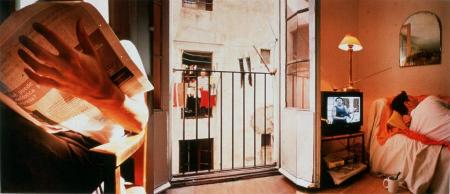 |
||
| David Hilliard - Untitled
Barcelona, 1997, C-Print, 3 panels, each ca. 50 x 40 cm |
||
 |
| David Hilliard - That Glorious
Society Called Solitude, 1998, C-Print, 4 panels, each ca. 50 x 60 cm |
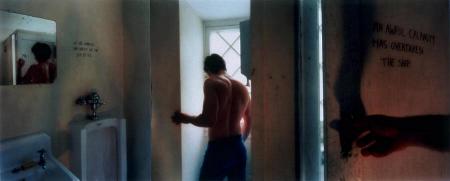 |
| David Hilliard - An Awful
Calamity, 2001, C-Print, 3 panels, each ca. 60 x 50 cm |
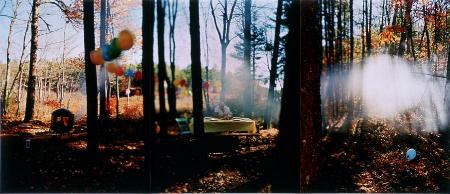 |
| David Hilliard - Blue Heaven,
2001, C-Print, 3 panels, each ca. 60 x 50 cm |
 |
| David Hilliard - Knoxville
Summer, 2001, C-Print, 4 panels, each ca. 60 x 50 cm |
 |
| David Hilliard - Consumed,
2003, 4 Panels each 24“ x 20“, image size 24“ x 80“ |
 |
| David Hilliard - Frozen
Turkeys, 2003, 5 Panels, each 24“ x 20“, image size 24“ x 100“ |
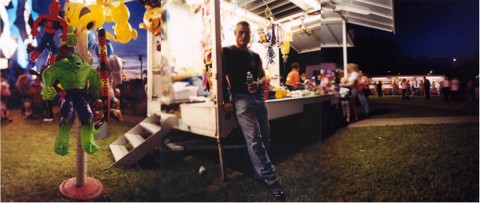 |
| David Hilliard - Hulk, 2003, 3 Panels, each 24“ x 20“, image size 24“ x 60“, and each 40“ x 30“, image size „40“ x 90“ |
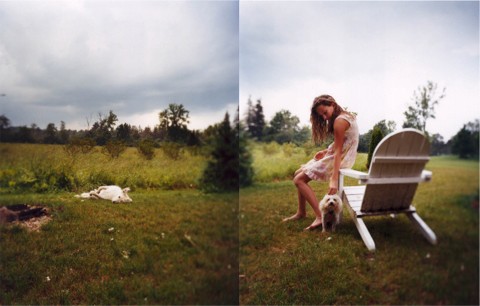 |
| David Hilliard - Elanor’s
Dress, 2003, 2 Panels, each 24“ x 20“, image size 24“ x 40“, and each 40“ x 30“, image size 40“ x 60“ |
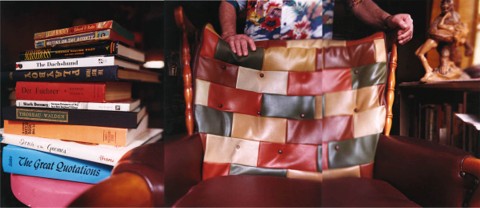 |
| David Hilliard - 11 Books,
2003, 3 Panels, each 24“ x 20“, image size 24“ x 60“, and each 40“ x 30“, image size 40“ x 90“ |
 |
| David Hilliard - Greenhouse,
2003, 2 Panels, each 24“ x 20“, image size 24“ x 40“, and each 40“ x 30“, image size 40“ x 60“ |
 |
| David Hilliard - Inspection,
2003, 3 Panels, each 24“ x 20“, image size 24“ x 60“, and each 40“ x 30“, image size 40“ x 90“ |
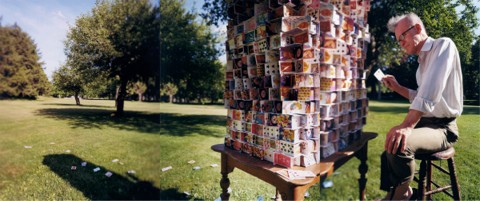 |
| David Hilliard - 100 Decks,
2003, 3 Panels, each 24“ x 20“, image size 24“ x 60“, and each 40“ x 30“, image size 40“ x 90“ |
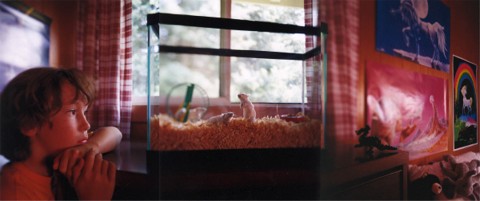 |
| David Hilliard - Pretty White
Things, 2003, 3 Panels, each 24“ x 20“, image size 24“ x 60“, and each 40“ x 30“, image size 40“ x 90“ |
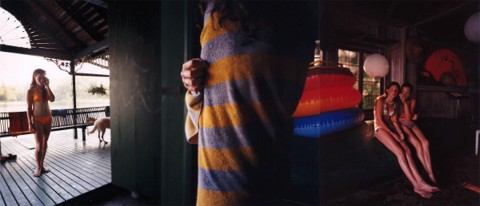 |
|
| David Hilliard - Rosemary’s
Dock, 2003, 3 Panels, each 24“ x 20“, image size 24“ x 60“, and each 40“ x 30“, image size 40“ x 90“ |
|
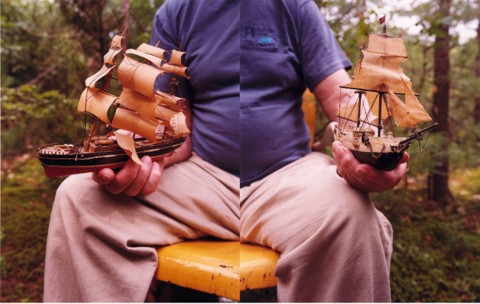 |
|
| David Hilliard - Seven Ports
of the Highlands, 2003, 2 Panels, each 24“ x 20“, image size 24“ x 40“, and each 40“ x 30“, image size 40“ x 60“ |
 |
|||||
| David Hilliard - Susies
Floating, 2003, 4 Panels, each 20“ x 24“, image size 80“ x 24“, and each 30“ x 40“, image size 120“ x 40“ |
|||||
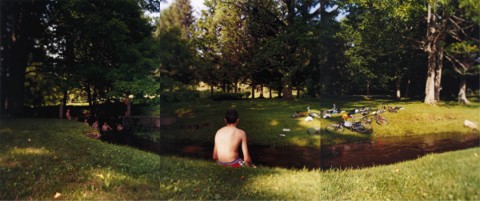 |
|||||
| David Hilliard - Swimmers,
2003, 3 Panels, each 24“ x 20“, image size 24“ x 60“, and each 40“ x 30“, image size 40“ x 90“ |
|||||
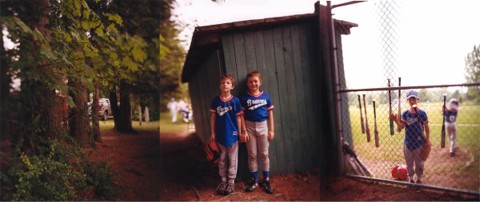 |
|||||
| David Hilliard - The Braves,
2003, 3 Panels, each 24“ x 20“, image size 24“ x 60“, and each 40“ x 30“, image size 40“ x 90“ |
|||||
 |
|||||
| David Hilliard - There’s Only
Biography, 2003, 4 Panels, each 24“ x 20“, image size 24“ x 80“, and each 40“ x 30“, image size 40“ x 120“ |
|||||
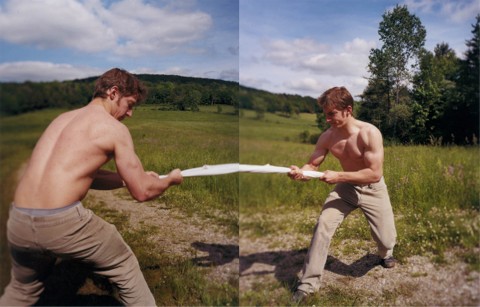 |
|||||
| David Hilliard - Tug of War,
2003, 2 Panels, each 24“ x 20“, image size 24“ x 60“, and each 40“ x 30“, image size 40“ x 60“ |
|||||
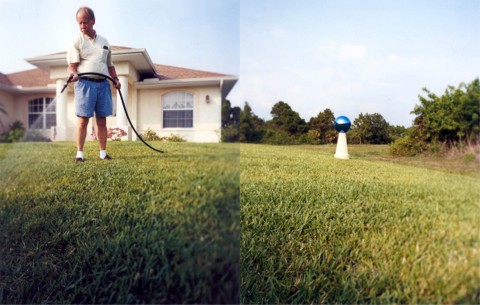 |
|||||
| David Hilliard - Vigil, 2003,
2 Panesl, each 24“ x 20“, image size 24“ x 40“, and each 40“ x 30“, image size 40“ x 60“ |
|||||
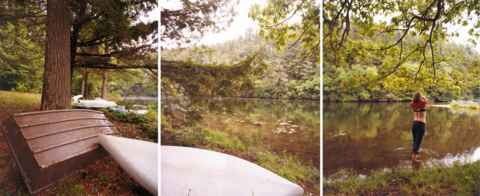 |
| David Hilliard - BEACH CLOSED |
 |
| David Hilliard - EXTRA CHEESE |
 |
| David Hilliard - 5 CORDS |
| David Hilliard - HIGHWAY OF THOUGHT |
| David Hilliard - RAINED OUT |
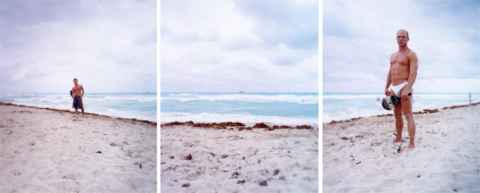 |
| David Hilliard - RECREATION |
| David Hilliard - SPECTATOR |
| David Hilliard - SUPERHEROS |